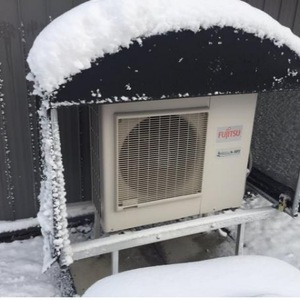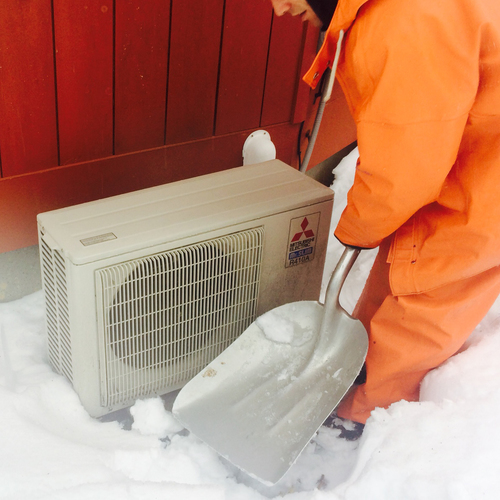
If you have recently hired a contractor to install an air-source heat pump at your house, you probably have a so-called “indoor unit” on an indoor wall, as well as an “outdoor unit” on a ground-mounted pad or a wall bracket. You might be wondering, “Should the outdoor unit be protected by a small roof?”
If you ask your contractor this question, he or she will usually answer, “Don’t worry—you don’t need a roof. Those outdoor units are designed to be weatherproof.” Although that statement is technically correct, it doesn’t tell the whole story.
Some units will benefit from a roof
It’s true that heat pump manufacturers do not require their outdoor units to be protected by a roof. That said, you may want to install a small roof over your outdoor unit to protect it from the rain. After all, keeping rain off the unit may reduce the chance of rust and extend the unit’s useful life.
If you live in a snowy climate, you’ll probably want to install a roof to reduce snow accumulation near the unit. If your outdoor unit ever gets buried in snow, the reduced air flow through the unit will prevent your heat pump from operating properly, and the heat pump may shut down completely.
Several factors will affect your decision on whether your unit will need to be protected from snow:
Weekly Newsletter
Get building science and energy efficiency advice, plus special offers, in your inbox.

This article is only available to GBA Prime Members
Sign up for a free trial and get instant access to this article as well as GBA’s complete library of premium articles and construction details.
Start Free TrialAlready a member? Log in













2 Comments
Martin,
I vote for no wall flashing. It's too much complication for little gain.
When screwing the triangles to the wall, is it enough to have the screws go into the exterior wall sheathing that's behind the siding? Or do I need to make sure they get into a stud? Also, any tips for installing this design to cedar shingle siding?
Log in or become a member to post a comment.
Sign up Log in